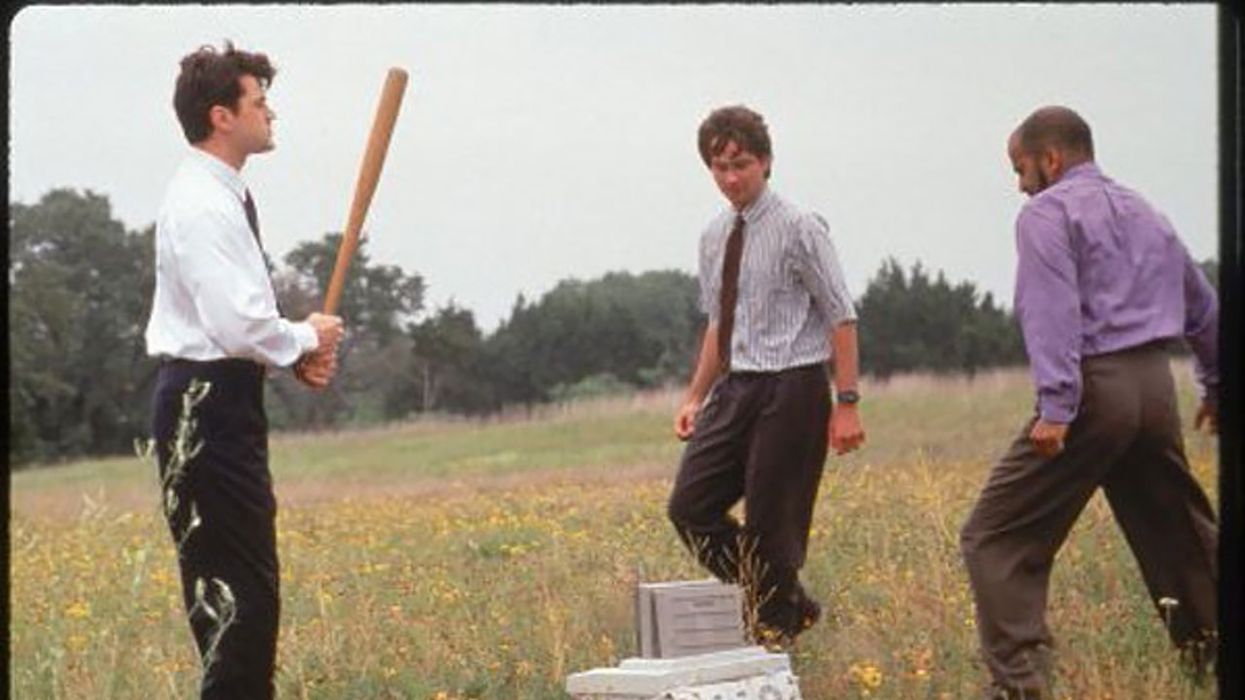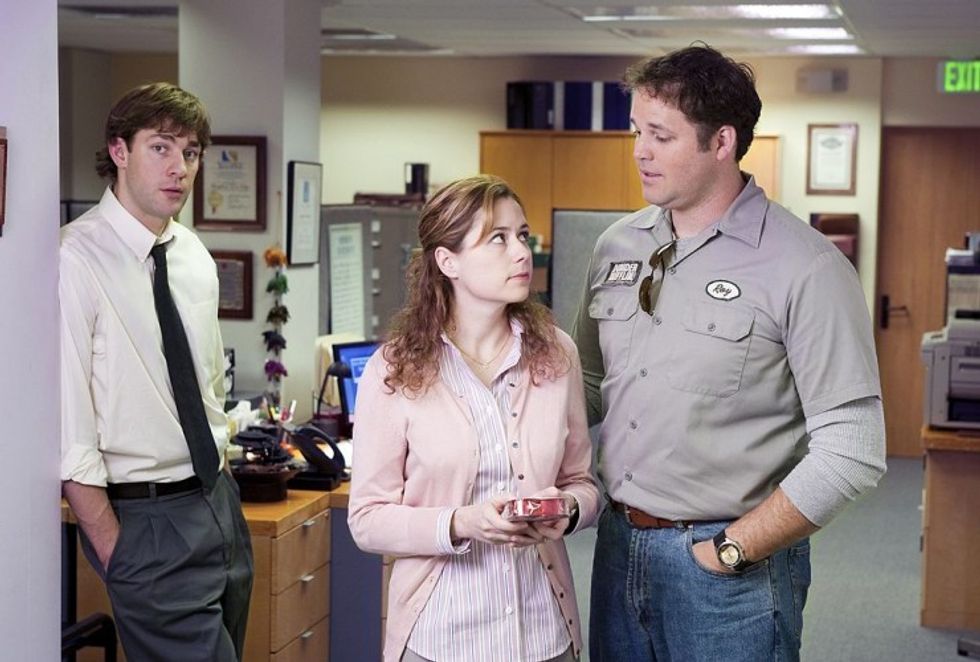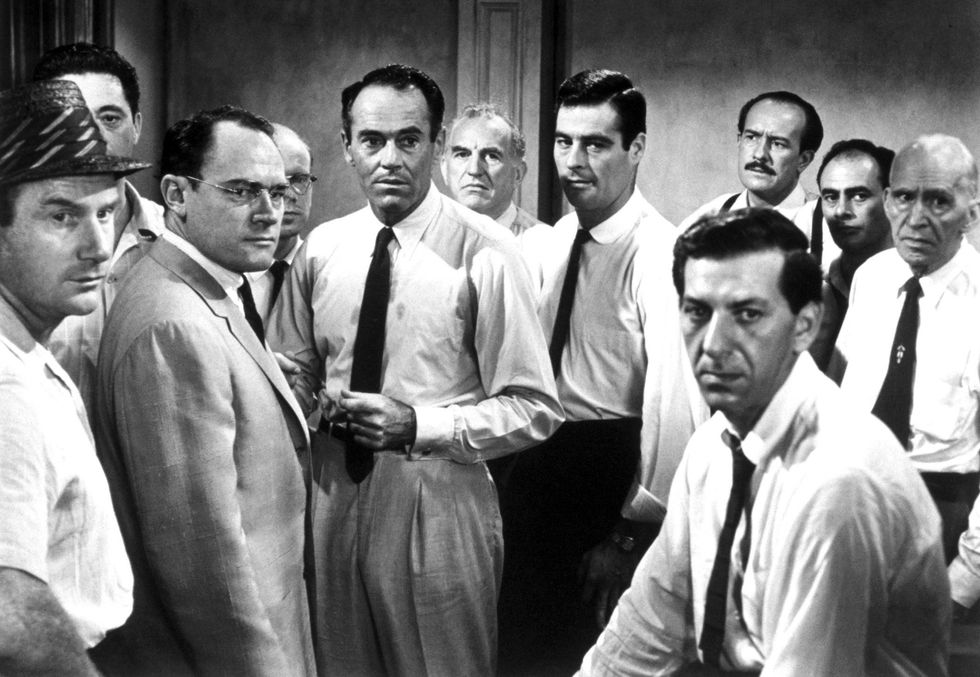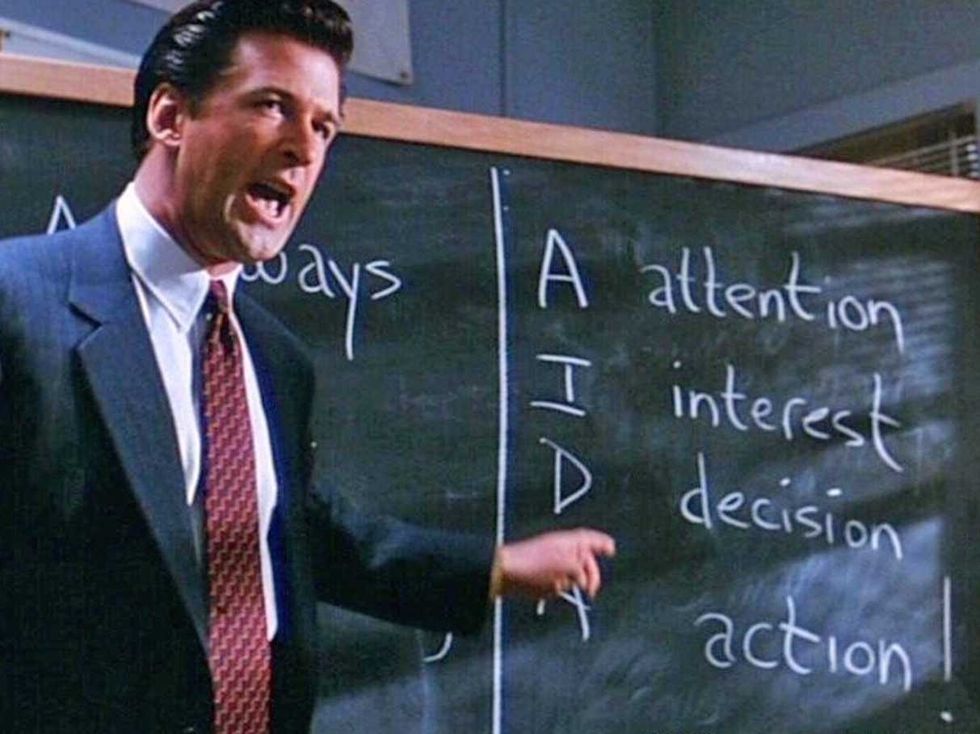Navigating Career Management in the Film & TV Landscape
Sometimes you just need to make a list of goals and follow through.

Office Space
One of the things we've been talking about on the No Film School Podcast recently is the idea of managing your career in Hollywood.
Whether you're a writer crafting captivating narratives, a director visualizing those stories, or a producer bringing them all to life, a successful career in film and TV hinges on producing great work and navigating the industry's landscape.
Today, we'll delve into the core aspects of career management, addressing the unique considerations for writers, directors, editors, cinematographers, and producers.
Let's get started.
Building Your Knowledge and Skills

The Office
NBC
Breaking into Hollywood requires a lot of persistence. But the real way to make a name for yourself in this industry is acquiring the skills and knowledge you need to succeed while on the outside.
That way, once you break in, you can keep the momentum going forward.
- Writers: Immerse yourself in the works of the greats—screenplays, novels, plays—to understand story structure, character development, and dialogue that resonates. Hone your craft through programs, workshops, and online resources.
- Directors: Develop a keen eye for visual storytelling. Analyze films across genres, dissecting camerawork, editing choices, and mise-en-scène. Filmmaking courses, independent projects, and working as a director's assistant offer invaluable experience.
- Producers: Master the art of the hustle. Understand budgeting, financing, scheduling, and the legalities of production. Explore producing workshops, internships with production companies, and shadowing established producers.
- Editors: Develop a sense of rhythm and pacing. Analyze films focusing on how editing choices shape the story, create suspense, and evoke emotion. Hone your editing skills through software tutorials, online courses, and hands-on experience with editing short projects.
- Cinematographers: Master the language of visual storytelling. Study different lighting techniques, camera movements, and lens choices to achieve striking, mood-setting visuals. Seek out cinematography workshops, collaborate on short films, and work as a camera assistant to gain valuable set experience.
Creating a Portfolio

Sansa Stark in Game of Thrones
HBOWhile on your journey to break in, you're using the work you do to build a portfolio, and creating a reputation for yourself.
What do these look like?
- Writers: Draft spec scripts and create original pilots. Short films are fantastic platforms to showcase both your writing and ability to collaborate on a small scale.
- Directors: Direct short films, music videos, or even commercials. Every project serves as a stepping stone. Compile a director's reel that highlights your visual storytelling strengths and ability to work with actors and crew.
- Producers: Build your producing experience by attaching yourself to independent projects or student films. Showcase your ability to solve problems, manage budgets, and contribute meaningfully to the creative process.
- Editors: Assemble a dynamic reel that highlights your ability to create seamless transitions, build tension, and manipulate time and space within a narrative. Include projects that showcase your versatility across genres and styles.
- Cinematographers: Build a visually compelling reel that demonstrates your command of lighting, composition, and camera movement. Showcase your ability to collaborate with the director to realize their creative vision. Highlight your expertise with various camera systems and ability to adapt to different shooting environments.
Work on Your Relationships

12 Angry Men
MGM
We often highlight the important of relationship in Hollywood. They're the support system that can carry you through the hard times, and also the people who can help you climb the ladder as well.
This step, to me, is the most important in all of your career building.
- Network Actively: Attend industry events, film festivals, and workshops. Don't be afraid to introduce yourself to people and strike up conversations.
- Build Genuine Connections: Networking isn't just about collecting business cards. Focus on building genuine connections with people who share your passion for filmmaking.
- Find a Mentor: Seek out an established professional in your field who can offer guidance and support. This mentorship could be formal or informal, but their insights can prove invaluable.
Develop Smart Freelancing Habits

Mad Men
AMCWe all start in this business as freelance, moving job to job. And even the higher up you get, it kind of stays that way. you're always signing for your supper in some sense of the word.
So if you want to stick around long enough, you should definitely work these things out.
- Budget Wisely: Freelance income can be inconsistent. Learn to budget effectively, anticipating gaps between projects. Develop a realistic understanding of freelance rates in your field and region. And when the pay rises, keep budgeting! you may need it to last longer or longer.
- Develop Multiple Income Streams: Explore opportunities beyond your primary focus. Writers might offer script consulting, directors could shoot wedding videos, and producers can work as production assistants to fill the gaps—the list goes on and on.
- Diversify Your Skills: The more versatile you are, the more hirable you'll be. Be open to learning new skills or taking on additional roles in smaller productions. Can you write and direct? Can you produce what you write? Stay open.
Once You Break In, Nothing Changes

Glengarry Glen Ross
New Line Cinema
The idea that once you break in, nothing changes speaks to a common misconception about the entertainment industry—that breaking in is the finish line.
It's not.
It's actually the starting line, and everything you've done before is just training.
- The Perpetual Hustle: The film and TV industry is built on a project-to-project basis. Even established professionals continuously hustle for their next gig. The work is rarely consistent, which requires continuous networking, seeking opportunities, and proving your value with each project.
- Competition is Constant: While landing a coveted job or getting your project made is a fantastic accomplishment, the competition never wanes. There's always an influx of new talent, fresh scripts, and innovative concepts. Complacency after a break can lead to stagnation.
- The Need to Evolve: The industry itself changes rapidly. Streaming platforms evolve, technological advancements happen, audience demands shift. To stay relevant, those who've "broken in" must continuously adapt, learn new skills, and find ways to make their work stand out in a changing landscape.
- Shifting Goals & Growth: For many filmmakers, securing one project isn't the ultimate goal. Once they experience the process, they strive for bigger budgets, more creative control, or to tell different stories. It's a constant cycle of setting new goals and pushing towards the next level.
- The Passion Factor: A fulfilling career in film and TV is often fueled by the love of the craft. Success doesn't negate that passion; for those genuinely dedicated, it often ignites it further. There's always something new to try, a different skill to master, or a compelling story to tell.
Building a fulfilling and sustainable career in film or television is a journey filled with triumphs, setbacks, and countless moments of self-discovery.
Celebrate your successes, learn from your failures, and never cease to be passionate about your chosen craft.
A career in film and TV is challenging but deeply rewarding for those with the talent, dedication, and strategic savvy to navigate this vibrant industry.
But if you manage it properly, everything will go well and it can last a long time.
- What's the Difference Between a Manager and an Agent? ›
- How to Become a Filmmaker and Ways of Breaking Into the Film Industry ›
- What Are The Building Blocks of a Long Career in Film and TV? ›
- A Guide to Agents, Managers, and Lawyers for Writers and Directors ›











